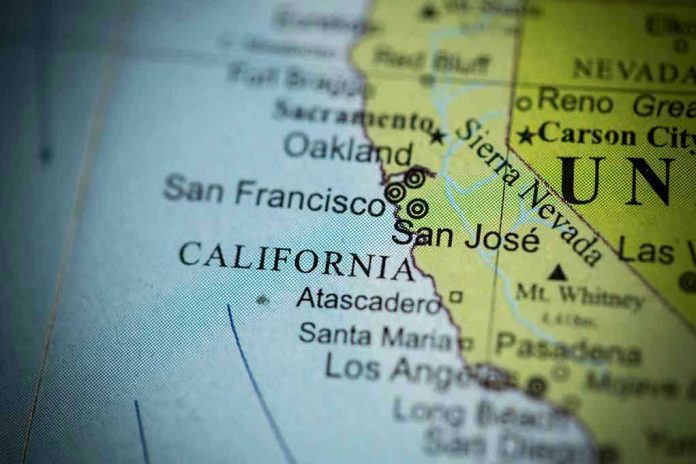
Federal power has again sidelined local control as California’s San Carlos Beach remains indefinitely closed—ostensibly for safety, but leaving residents and businesses at the mercy of expansive wildlife protection laws.
Story Highlights
- San Carlos Beach in Monterey closed indefinitely due to a large sea lion influx and federal wildlife laws.
- Public safety and legal compliance cited, but closure disrupts local access and businesses near Cannery Row.
- City officials emphasize compliance with federal mandates, limiting community say in reopening.
- Closures are becoming longer and more frequent as urban wildlife conflicts escalate.
Closure Driven by Federal Wildlife Regulations, Not Local Choice
San Carlos Beach, a cherished public space in Monterey, California, has been shut down indefinitely following the arrival of hundreds of California sea lions during their seasonal migration. City officials point to public safety and federal wildlife protection laws as justification, but local residents and businesses are left with no voice on when or if the beach will reopen. The Marine Mammal Protection Act prohibits disturbing these animals, forcing the city’s hand and removing local discretion from the process.
The indefinite nature of the closure is especially concerning: the city has not provided a timeline for reopening, with decisions resting on unpredictable animal behavior and strict legal requirements. This recurring event, once a short-term inconvenience, now threatens to become a new normal. Closures in June and August 2025 follow a trend of increasingly frequent and lengthy shutdowns, reflecting a broader shift toward prioritizing federal mandates over the interests of local communities.
Impact on Local Economy, Families, and Community Recreation
For families, tourists, and local businesses, the closure means real consequences. San Carlos Beach is a central recreation hub, vital to Monterey’s tourism and everyday life. Shops and restaurants near Cannery Row rely on steady beach traffic, and every day the closure drags on, foot traffic and sales drop, threatening livelihoods. Residents lose access to open space, and parents are left with fewer safe, affordable options for family outings, particularly frustrating as closures now stretch for weeks or months with no end in sight.
Local frustration is compounded by the perception that federal policies place the interests of wildlife above those of taxpaying Americans. While the city encourages people to “enjoy and watch the sea lions from a distance,” this advice does little to replace lost community assets. The closure highlights a fundamental tension: when federal laws dictate local realities, the ability of communities to balance conservation with human needs is sharply limited.
Federal Overreach and Erosion of Local Voice
The city of Monterey manages beach access, but federal wildlife agencies and their regulations hold ultimate authority. The Marine Mammal Protection Act not only restricts direct contact but also compels the city to enforce closures whenever large groups of sea lions are present. While wildlife agencies and conservationists support these measures, local businesses and residents have little formal power to influence reopening decisions. This imbalance leaves communities feeling sidelined, as key decisions affecting daily life are made far from the people most impacted.
Expert opinions from wildlife organizations argue that these closures are necessary for animal safety and compliance, but even some conservationists acknowledge the need for clearer criteria and more transparent communication with the public. The push for ever-stricter enforcement, without addressing the economic and social cost to Americans, raises questions about priorities—especially as closures become longer and more frequent in urban areas.
Broader Implications: Precedent for Future Closures and Community Rights
San Carlos Beach’s ongoing closure sets a precedent: federal wildlife laws can now indefinitely override local wishes and economic needs in the name of conservation. As more urban beaches face similar conflicts, the debate will intensify over who controls access to public spaces and how to balance environmental concerns with American families’ rights to recreation and commerce. Without reforms, communities may see their voices eroded further whenever federal mandates collide with local priorities.
A popular beach in Monterey, California, has been temporarily closed again due to congregating sea lions. https://t.co/vCp0ngyrp6 pic.twitter.com/T3kvTSI0qe
— The Epoch Times UK (@ukepochtimes) August 28, 2025
While there have been no reports of harm from recent closures, the risk to local values—from limited access, economic losses, and diminishing self-determination—is real. The San Carlos Beach saga is not just about sea lions: it’s about who decides how America’s treasured public spaces are used, and whether local voices will continue to be drowned out by distant, one-size-fits-all federal mandates.
Sources:
Monterey temporarily closes public access to Cannery Row beach to protect sea lions
Cannery Row beach closes as sea lions take over
California beach closes as sea lions take over
Sea Lions Return: San Carlos Beach Closed, August 2025













